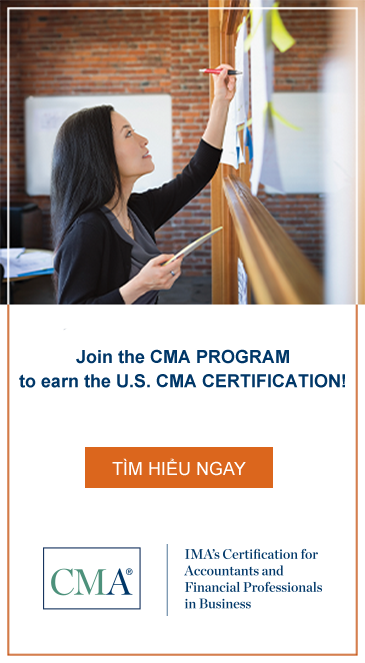
BUILDING A STRONGER FINANCE AND ACCOUNTING WORKFORCE WITH CERTIFICATION
“Organizations that emphasize and incentivize training and external certification of their finance and accounting professionals perform functions more efficiently,” found a 2019 IMA global survey. Since the time of the survey, the urgency to reskill and train employees for a fast-accelerating Digital Age has only increased. McKinsey has noted that the COVID-19 crisis forced employees to change how they work, virtually overnight. Employers, for their part, are unsure of how well their workforce can adapt to automation, big data, and quantum computing power, which are now accessible technologies they are poised to implement, if they have not already done so.
So, what are the skills these employers need most from their employees? According to McKinsey, the skills most necessary to fully realizing the potential of digital technologies include:
- Digital and cognitive capabilities
- Social and emotional skills
- Adaptability and resilience
McKinsey’s call to employers is this: “Now is the time for companies to double down on their learning budgets and commit to reskilling. Developing this muscle will also strengthen companies for future disruptions.”

One of the most expedient ways of quickly offering employees upskilling opportunities is through professional certification (photo: freepik.com)
One of the most expedient ways of quickly offering employees upskilling opportunities is through professional certification. Certifications offer specialized knowledge in a specific area and boast benefits such as:
- Can be pursued without leaving one’s job
- More cost effective than an academic degree
- Less time consuming
- Valued by employers searching for a specific skillset
For management accountants, the CMA® (Certified Management Accountant) certification is a way to demonstrate mastery of the competencies involved in performing finance and accounting. Recently, the CMA certification passed a major milestone when the number of CMAs certified since the program’s inception in 1972 reached 100,000. It took 44 years to reach 50,000 CMA certificates in 2016, but only five years to reach the 100,000th in 2021.
In the midst of the pandemic, more and more organizations have come to view upskilling as a strategic imperative (according to a recent LinkedIn Learning survey, which found 66% of respondents view learning and development as a way of rebuilding organizations after the pandemic), so certifications are taking on new significance. In a recent Accounting Web article, Dennis Whitney, CMA, senior vice president of certifications at IMA, noted a post-pandemic hiring uptick and fierce competition for accounting and finance talent.

In the midst of the pandemic, more and more organizations have come to view upskilling as a strategic imperative (photo: freepik.com)
Indeed, the new reality for people is the need to continually upskill, and consequently, the organizations they work for have put more emphasis on creating a culture of learning. Kristine Brands, CMA, an assistant professor of management at the United States Air Force Academy in Colorado Springs, Colo., shared her advice to companies who want to future-proof their employees in a recent Strategic Finance article. She said, “Technology disruption is the new normal. Occasional training won’t get the job done. Instead, organizations must focus on creating a learning culture to continuously develop employees.”
Certifications (like the CMA) are a great place to start, and that is why IMA is celebrating its 100,000th CMA.
Source: imanet













